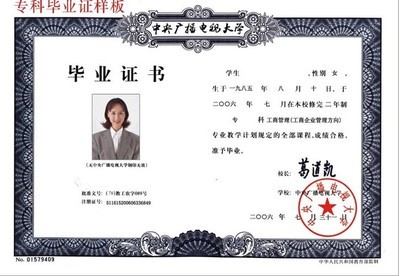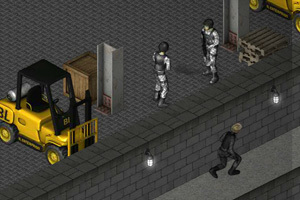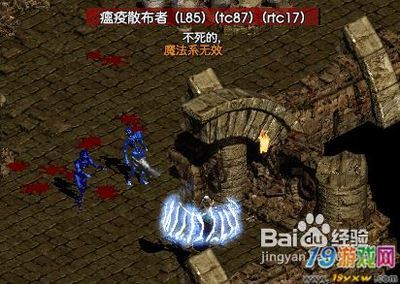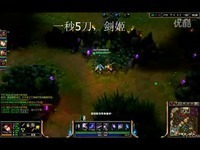●“Arrange a meeting for Friday,Guy”said Max(用to tell改写句子Max told Guy to arrange a meeting for Friday.
●Are the young couple drinking red or white wine? (用he asked改写成间接一般问句)He asked whether the young couple were drinking red or white wine.
●Are the customers happy? (用he asked改写成间接一般问句)He asked if the customers were happy
●Are the meals ready? (用she asked 改写成间接引语)She asked whether the meals were ready.
●Alan bought the things. He bought things he would need for the trip.(用that改写句子)Alan bought the things that he would need for the trip.
●Although it rained, the visit was a success.(用In spite of将两句连成一句)In spite of the rain, the visit was a success.
●At the meeting Tim listened to his colleagues.They gave him their opinions.(用动词ing形式改写句子) At the meeting Tim listened to his colleagues giving him their opinions
●“Can you phone me later, Susan?” said David.(用ask, to改写句子)David asked Susan to phone him later.
●“Can you get me the list of hotels,Susan?”said David(用ask..to改写句子)David asked Susan to get him a list of hotels.
●“Can you tell me the flight time, please,Susan?”said Xiaoyan.(用ask…about改写句子)Xiaoyan asked Susan about the flight time.
●Can I talk to the guests? (用she asked me改写成间接特殊疑问句) She asked me whether /if she could talk to the guests.
●“Could you please prepare me a document about publicity,Rose?”said Max(用ask…for改写句子)Max asked Rose for a document about publicity.
●Did the customer pay? (用he asked改写成间接一般问句)He asked whether the customer had paid.
●Do the customers like the new atmosphere? (用she asked me改写成间接特殊疑问句)She asked me whether/if the customers liked the mew atmosphere.
●Does Mr Sims like his wine? (用he asked改写成间接一般问句)He asked if Mr Sims liked his wine
●Does the fish taste good? (用he asked改写成间接一般问句)He asked whether the fish tasted good.
●“Don’t phone me,Peter”said John.(用tell..to改写句子)John told Peter not to phone him.
●Everything in that shop is terribly expensive(用so改写句子) Everything in that shop is so expensive
●Finally he had enough money. He bought his ticket.(用so改写句子) Finally he had enough money,so he bought his ticket.
●“Have you got my bag?” she asked.(将句子改成间接引语)She asked if I had got her bag.
●Have you introduced any new dishes? (用she asked me改写成间接特殊疑问句)She asked me whether/if I had introduced any new dishes
●He asked a friend to go with him. The friend couldn’t go. His friend was too busy.(用but、because改写句子) He asked a friend to go with him, but he couldn’t go because he was too busy.
●He agrees with Ken(用Who对Jenny提问)Who does he agree with?
●He bought the trousers. I chose them for him. (用that连接句子) He bought the trousers that I chose for him.
●He cleaned the car.He cleaned my car(用that/which连接句子)The car that/which he cleaned was mine.
●He called at a travel agent’s. They told him how much the ticket would cost.(用who改写句子) He called at a travel agent’s who told him how much the ticket would cost.
●He didn’t run fast. He didn’t catch the bus.(用enough…to改写句子)He didn’t run fast enough to catch the bus.
●He disturbed the burglars.(用被动语态改写句子)The burglars were disturbed by him.
●He phoned the friend.The friend lent him money. He didn’t have enough(用who 、because 改写句子)He phoned the friend who lent him money because he didn’t have enough.
●He phoned the girl. She was his sisters’friend(用that/who连接句子)The girl that/who he phoned was his sisters’friend.
●He hadn’t got enough money. He had to wait for a while(用so改写句子) He hadn’t got enough money, so he had to wait for a while.
●He saw them.They carried Tim’s things to a van.(用动词ing形式改写句子.He saw them carrying Tim’s things to a van.
●He saw them.They left the house. .(用动词ing形式改写句子.He saw them leaving the house.
●He stole the laptop. (改为被动语态)The laptop was stolen by him.
●He shouldn’t work such long hours.You shouldn’t work long hours. (用neither改写句子)He shouldn’t work such long hours and neither should you.
●He shouldn’t work such long hours.You shouldn’t work long hours. (用not…either改写句子) He shouldn’t work such long hours and you shouldn’t either.
●He took the computer(将句子改为被动语态)The computer was taken by him.
●He went to a shop. He bought a rucksack there.(用where改写句子) He went to a shop where he bought a rucksack.
●He went to Beijing.He had a friend in Beijing.(用where改写句子) He went to Beijing where he had a friend.
●He’s gone to Shanghai. He’s negotiating a new contract.(用动词不定式将两句连成一句) He’s gone to Shanghai to negotiate a new contract.
●He’s looking after his mother(用who对his mother提问)Who is he looking after?
●He’s really bad tempered.Idon’t talk to him.(用so改写句子) He’s really bad tempered, so I don’t talk to him.
●His neighbour didn’t phone the police immediately. He rang Tim at the office. (用instead of改写句子)Instead of phoning the police immediately, his neighbour rang Tim at the office
●His neighbor listened to them. They damaged the flat.(用动词ing形式将两个句子改写成一句) His neighbor listened to them damaging the flat.
●His neighbor heard them. They made a noise.(用动词ing形式将两个句子改写成一句) His neighbor heard them mading a noise.
●How many people are eating? (用he asked改写成间接特殊疑问句)He asked how many people were eating
●I can’t keep accounts. She can’t keep accounts.(用neither/nor改写句子)I can’t keep accounts and neither/nor can she.
●I can’t keep accounts. She can’t keep accounts.(用not…either改写句子)I can’t keep accounts and she can’t either.
●“I can’t find my notebook,”she said.(改为间接引语)She said she couldn’t find her notebook.
●I don’t like sweet things. They don’t like sweet things(用neither/nor改写句子)I don’t like sweet things and neither/nor do they.
●I don’t like sweet things. They don’t like sweet things(.(用not…either改写句子)I don’t like sweet things and they don’t either.
●I don’t want to read the book. I put it on the table.(用that/which连接句子) I don’t want to read the book that/which I put on the table.
●I have’t got a car. She hasn’t got a car.(用neither/nor改写句子) I haven’t got a car and neither/nor has she.
●I have’t got a car. She hasn’t got a car.(用not…either改写句子) I haven’t got a car and she hasn’t either.
●“I heard a noise under my living room”he said.(改写成间接引语)He said he heard a noise umder his living room.
●I heard from Jenny today.(用Who征对Jenny提问)Who did you hear from?
●I’m a teacher and she is also a teacher.(用so改写句子) I’m a teacher and so is she
●I’m tall and thin. My mother is too.(用so改写句子) I’m tall and thin and so is my mother.
●I’m looking for the telephone book.(用what 对telephone book提问)What are you looking for?
●I’m going on holiday tomorrow. She is going on holiday tomorrow. (用so改写句子) I’m going on holiday tomorrow and so is she.
●I’m going on holiday tomorrow. She is going on holiday tomorrow. (用too改写句子) I’m going on holiday tomorrow and she is too.
●I’ve written to Green Fingers(用who征对Green Fingers提问)Who have you written to?
●I’ll apply for that job tomorrow.(用What征对that job提问)What will you apply for tomorrow?
●I like the new restaurant and Polly does too.(用so改写句子)I like the new restaurant so does Polly.
●I opened the door.They could come in.(用so改写句子) I opened the door, so they could come in.
●I took the flight.It left at 6 a.m.( (用that/which改写句子)I took the flight that/which left at 6 am.
●I went shopping. I needed a new pair of shoes.(用because将两句连成一句) I went shopping because I needed a new pair of shoes.
●It was raining.We went home.(用so改写句子) It was raining ,so we went home.
●I was too hot. I couldn’t open the window.(用but将两句连成一句) I was too hot but I couldn’t open the window.
●“I want some photographs”she said(改写成间接引语)She said she wanted some photographs.
●“I want my laptop back,”said Tim. (改写成间接引语)Tim said if she could have a cup of tea.
●Is the food ready?(用he asked改写成间接一般问句)He asked if the food was ready.
●Is the builder coming tonight? (用he asked改写成间接一般问句)He asked whether the builder was coming tonight.
●Is the new dish tasty? (用he asked改写成间接一般问句)He asked whether the new dish was tasty.
●It was raining. We went home.(用so将两个句子合成一句)It was raining so we went home.
●It was a place. He wanted to go there.(用where将两句合成一句) It was a place where he wanted to go.
●Jack is responsible for all the training.(用What针对 all the training提问)What is Jack responsible for?
●Mary didn’t stay at home. She went round to see Tim.(用instead of将两个句子合成一句)Instead of staying at home, Mary went round to see Tim.
●“Put the folders on the table, please, Debbie,”said Susan.(用ask…to改写句子)Susan asked Debbie to put the folders on the table.
●She’s coming here. She’s signing the contract.(用动词不定将两句合成一句)She’s coming here to sign the contract.
●She’s contacted that company.She’s applying for a job(用动词不定式将两句连成一句) She’s contacted that company to apply for a job.
●She’s forgot about the meeting yesterday.(用What 针对the meeting改写句子)What did she forget about yesterday?
●She’s got a new job. He’s got a new job.(用so改写句子) She’s got a new job and so has he.
●She’s got a new job. He’s got a new job.(用too改写句子) She’s got a new job and he’s got too.
●She bought T-shirts.They were too small for me. (用that/which连接句子)The T-shirts that/which she bought were too small for me.
●She sold the radio. She had it in her bedroom. (用that/which连接句子) She sold the radio that/which she had in her bedroom.
●She packed the suitcase.She was taking it to Shanghai. (用that/which连接句子) She packed the suitcase that/which she was taking to Shanghai.
●She was promoted.He was promoted. (用so改写句子) She was promoted and so was he.
●She was promoted.He was promoted. (用too改写句子) She was promoted and he was too.
●So he asked a friend called Marcus.The friend was interested in travel. This friend said he would like to go(用who/that、and改写句子)So he asked a friend called Marcus who/that was interested in travel, and he said he would like to go .
●South America is a continent. South America has always interested Alan a lot.(用that改写句子) South America is a continent that has always intetested Alan a lot.
●That is the company. Their staff work for us.(用whose改写句子) That is the company whose staff work for us.
●That’s the firm.The firm’s manager is Mr Willetts(用whose改写句子) That’s the firm whose manager is Mr Willetts.
●That cinema is very nice. The tickets are quite expensive.(用but 将两句连成一句) That cinema is very nice but the tickets are quite expensive.
●“That gives me a good idea”he said(改为间接引语)He said that gave him a good idea.
●“That meeting was long and boring,Max”said Rose.(用tell..about改写句子)Rose told Max about the meeting.
●The book was on the table.I took it.( 用that改写句子)I took the book that was on the table.
●The burglar broke into my flat. He took a lot of things. (用that/who连接句子)The burglar that/who broke into my flat took a lot of things.
●The burglars didn’t see him.He came downstairs.(用动词ing改写句子) The burglars didn’t see him coming downstairs.
●The thieves didn’t open the door.They smashed the lock. (用instead of将两个句子合成一句)Instead of opening the door, the thieves smashed the lock
●The firm employed Polly. The firm is called Green Fingers. (用that/which连接句子) The firm that/which employed Polly is called Green Fingers.
●The people arranged the meeting. They got the time wrong(用that/who连接句子)The people that/who arranged the meeting got the time wrong.
●“The presentation was good,Jack”said Mary(用tell...about 改写句子)Mary told Jack about the presentation
●The neighbour contacted the police.(改为被动语态)The police were contacted by the neighbour .
●They’re worried about Jim.(用Who针对Jim提问)Who are they worried about?
●They’ve gone to Bristol.They’re performing in a concert.(用动词不定式改写句子) They’ve gone to Bristol to perform in a concert.
●They are going to look after the cat.(用What 针对the cat改写句子)What are they going to look after?
●They smashed the window.(改成被动语态)The window was smashed by them.
●They cooked the meal. We had it last night. (用that/which连接句子) They cooked the meal that/which We had last night.
●They carried the things to the van,(将句子改为被动语态)The things were carried to the van by them.
●They don’t smoke. He doesn’t smoke.(用neither/nor改写句子) They don’t smoke and neither/nor does he.
●They don’t smoke. He doesn’t smoke. (用not…either改写句子) They don’t smoke and he doesn’t smoke either.
●They decided on a trip. The trip would go from Buenos Aires to Mexico City.(用that改写句子) They decided on a trip that would go from Buenos Aires to Mexico City.
●They kicked the door in.(改为被动语态)The door was kicked in.
●They sold the house. It was very modern. 用that连接句子) The house that they sold was very modern.
●“They took my laptop” said Tim(改写成间接引语)Tim said they took his laptop.
●They were late.They had to drive fast.(用so改写句子) They were late, so they had to drive fast
●This is the house.She lives there.(用where改写句子) This is the house where she lives.
●Tim didn’t stay in the meeting. He left the office.(用instead of将两个句子合成一句) Instead of staying in the meeting, Tim left the office.
●Tim didn’t meet Mary. He went home. (用instead of将两个句子合成一句)Instead of meeting Mary, Tim went home.
●Tim didn’t go to work the next day. He cleared up the flat.( (用instead of将两个句子合成一句) Instead of going to work the next day, Tim cleared up the flat.
●Tim has lost his camera. I have lost my camera.(用so将两句合成一句) Tim has lost his camera and I have too.
●Tim has lost his camera. I have lost my camera.(用too将两句合成一句) Tim has lost his camera and so have I.
●Tim listened to his secretary.She told him about the burglary.(用动词ing形式改写句子) Tim listened to his secretary telling him about the burglary.
●What problems have you had this evening? (用she asked me改写成间接特殊疑问句)She asked me what problems I had had this evening.
●Where is the restaurant?(用He asked 改写成间接特殊疑问句) He asked where the restaurant was.
●Who’s the builder?(用she asked me改写成间接特殊疑问句)She asked me who the builder was.
●Who is working in the restaurant?(用he asked改写成间接特殊疑问句)He asked who was working in the restaurant.
●Who wants some soup? (用he asked改写成间接特殊疑问句)He asked whowanted some soup.
●Why are the decorators late? (用he asked改写成间接特殊疑问句)He asked why the decorators were late
●Why isn’t the wall finished? (用he asked改写成间接特殊疑问句)He asked why the wall wasn’t finished
●We had a meal there.Harry did too.(用so改写句子)We had a meal there and so did Harry.
●We made a trip to Edinburgh. It was very good. .(用that/which改写句子)The trip that/which we made to Edinburgh was very good.
●“We need fingerprints”she said.(改写成间接引语)She said they needed fingerprints.
●“We don’t know where our things are”they said.(改写成间接引语)They said they didn’t know where their things were.
●When can Franco open the restaurant?( (用he asked改写成间接特殊疑问句) )He askedWhen Franco could open the restaurant.
●When will the restaurant be ready? (用he asked改写成间接特殊疑问句) He asked when the restaurant would be ready.
●Will you do it again? (用she asked me改写成间接特殊疑问句)She asked me whether/if I would do it again.
●Xiaoyan hasn’t bought a flat.I haven’t bought a flat. (用neither/nor改写句子)Xiaoyan hasn’t bought a flat and neither/nor does he.
●Xiaoyan hasn’t bought a flat.I haven’t bought a flat. (用not…either改写句子)Xiaoyan hasn’t bought a flat and I haven’t either.
●“Yes,Polly ,the flight was very easy and not too long,”said Xiaoyan.(用tell..about改写句子) Xiaoyan told Polly about the flight.
交际用语 除了部分新题型外, 如果跟下面的回答一样就选A对, 不一样就选B错,
●Are you married?Yes, I am.
●Why do you come to live in China? Because I got a job here.
●What’s your job?I’m a journalist.
●When did he go to America?Two years ago.
●Are you ready to order ?Ice cream for me please.
●Are you ready to order?Could I have a glass of wineplease?
●Are you ready to order? Yes. I’ll have a chicken salad please
●Are you ready to order?Yes. I’ll have a steak, please.
●Can you remember the doctor’s telephone number? Yes. It’s 6825612
●Could I have a bottle of water, please? Certainly, madam
●Your friend Sally phoned you this afternoon.Can I help you?
●Have you been to America? Yes. I went there last year.
●Have you ever tried sailing? _ No. I’d like to try
●How about drinking some coffee?I’d prefer to drink some tea
●How is the weather today?I’m fine,thank you.错选B
●I went to a fashion show last night.What was it like
●Is dinner ready, Carol?It’s nearly ready
●Is there a bank near here?Yes. There is one just down the road.
●It’s very easy to clean up the room. Anyonecan do it.
●Shall we see a film tonight?I’d rather not, I’m quite tired
●What are you going to do this evening? I’m going to meet some friends 对选A
●What are you going to do this evening?I saw a film with my son.错选B
●What a nice day!B:Yes.Let’s go camping, shall we ?
●What does he look like? He is tall and thin
●What time will the next train leave?At 8.19 对选A
●What did you think of the film?I thought it was really great
●Where did you go in China?I went to Xi’an and Guilin
●Which picture do you like?B: I think the big one is better.
●Why don’t we go to a restaurant? Great
●Would you like to go to the cinema this evening?Yes, that’s a good idea
●What did you have for breakfast?Coffee and toast.
●What would you like to have?An orange juice, please. 对选A
●Where did you go for your holiday?Two years ago.
错选B
●Would you like to go to the cinema with me?I’d rather stay at home.
选择题
●Neitherof her brothers came to the wedding. They don’t like her new husband.
●Neither, her mother norshe was at home when the thief came in.
●Which of these books are yours?
●A: Have you finished your homework? B: No, I haven’t.
●A: Have you typed the letter for me? B: Yes, I have.
●A:Have you had your breakfast?B: No, I haven’t had it yet
●A: Have you sent the fax to the travel agent? B: Yes, I have
●A: Have you ever seen the film The Day After Tomorrow?B: _ No, I haven’t
●A:I haven’t eaten all day. B:You must be very hungry.
●A: Thank you for lending me your dictionary.B: You’re welcome. But could you give it back to me tomorrow?
●A: Who is at the door? B: It must be our new neighbour, Mrs Jones.
●After they finished playing football, they went for a drink in a pub.
●An application form will be sent to you on request
●Be careful! Don’t cut yourself with the knife.
●Don’t _disturb_ him. He is writing a letter now.
●Can Mary express herself in Chinese?
●Could you tell me how to improv my English?
●Have you ever seen a tiger?
●He asked the waiter for a glass of water.
●He bought two books.So didI.
●He said that hewouldtry his best to help me.
●He said hehadn’t got enough money.
●He used to shoutat me when I was a child.
●He is a good friend of ours
●He failed in spite of all his efforts.
●He stopped watchingTV when the dinner was ready.
●Is the supermarket on the right or left?
●Is it difficult to learn to do Tai Chi?
●I saw him reading a bookin his office when everyone was looking for him.
●I didn’t buy the book because I didn’t have anymoney on me.
●I don’t know how to explain it
●I don’t know where the key is, but I suppose I could have left _ it at home.
●I’m tired. I haven’t got enough energy (精力)to go to the gym today.
●I’m going to buy Mary a birthday gift. Do you have anything special in mind?
●I was on my way to school when I saw the accident.
●I have no idea who stole his wallet. It could have been anyone.
●I’ve always enjoyed swimming
●If I don’t have to work late on Friday, I might go dancing with friends.
●John enjoysjogging while his brother prefers to go skiing.
●John didn’t turn upuntil the meeting had finished.
●Let’s go to the Great Wall by bike, shall we ?
●My plant died. I should have watered (浇水)it.
●My aunt was angry with her family and went away by herself
●Mary’s father is very pleased with her.
●Mike offered to help and so did John.
●Paul began to learn French when he was 11.
●Shall we go to a reastaurant? See you later. 错选B
●Sally is looking for a new job. She has been bored with her job as a secretary.
●She can hardly wait to hear the news, can she?
●She goes_ jogging every morning.
●She told the children not to make a noise.
●She went to town last week.
●Sorry, I’m not free this evening.I will have dinner with Mike.
●There wasn’t anybodyin the house when she got home.
●The children are enjoying themselves at the party.
●The film was so boring that I fell asleep in the cinema.
●The gifts he brought from Britain were sent outlast week.
●The house was made of wood.
●The book was rather expensive, but I bought it anyway
●The boys got up very late this morning. They watched too much TV last night.
●The child speaks fluent French.
●They decided to leave next Friday.
●They named the island afterits discoverer.
●Today is too busy. Let’s discuss it _some time next week .
●Tom helped her mother with the cooking.
●Tomorrow is my mother’s birthday. I want to buy something special _for her.
●This idea hit me when I woke up this morning.
●This red bicycle is _ his , and that blue one is Tom’s
●We’re going on holiday in the autumn this year.
●You’re driving too fast , slow down!
●You can remember what you do if you keep a diary
●You’d better stop talking . We’re listening to the news.
●You should be more patient with your children.
●You won’t get better if you don’t give upsmoking.
●We built the house ourselves . Nobody helped us.
●Where’s todays’ newspaper?
英译汉
●Areyoureadytoorder.Acoffeeforme.你准备好了点餐吗?请给我来杯咖啡
●After they landed, they went to the comference.他们降落后,他们去了会场.
●Although it is very enjoyable, the film is too long.这部电影挺好看的,但是太长了.
●Before I went to see my girlfriend ,I had my hair cut在我见女朋友前,我理了发
●Because of the rain.因为下雨
●Becarseitwaslate,wedidn`tgotothefilm. 我们
没去看电影,因为时间晚了
●Before they left, they had a coffee.他们离开前喝了杯咖啡.
●Beijing is an hour’s drive from Tianjin.北京离天津1个小时的车程.
●Both of the boys are good at singing.两个男孩歌都唱的很好.
●Chengdu is northwest of Chongqing.成都在重庆的西北部.
●Dave’s picking up van tomorrow.大卫明天会去取车
●Did you use to get on well with your brother? 你曾经和你哥哥/弟弟关系处得好吗?
●Do you get on well with your classmates.你和你的同学关系好吗?
●Do you take after your mother or father?你是像你的爸爸还是像你的妈妈.
●Football is the most popular sport in the world.足球是世界上最受欢迎的体育运动.
●He asked me if I would like a cup of tea. 他问我是否想喝一杯茶
●He is over there. The one who is wearing blue jeans. 他站在那儿,穿蓝色牛仔裤的。
●He came across an old violin (painting)at his
aunt’s(friend's)house.他在他阿姨(朋友)家看到一把很旧的小提琴(一幅古老的画).
●He bought the trousers that I chose for him.他买了我给他挑选的裤子。
●He didn’t get up until 10.他直到10点才起床.
●He has lived in London for three years.他已经在伦敦住了三年了.
●Heiswearingawhiteshirt.他穿着白衬衫
●He is wearing a green(red)shirt.他穿着一件绿(红)色的衬衫.
●He is over there. The one who is wearing blue jeans. 他站在那儿,穿蓝色牛仔裤的。
●He could have gone to visit his parents in Bath.他可能去百期看他的父母
●He studies in a university west of Beijing.他在北京西部的一所大学上学。
●Hedidn`tusetosmoke, buthedoesnow.他过去不常吸烟,但现在吸烟了.
●He used to play basketball every Sunday.他以前每周日都会去打篮球。
●He walks towards the window.他朝窗户走去.
●Hegotonwellwithhissister.他和他姐姐相处很融洽
●Hepointedoutthatsheneededabettetrviolin.他
指出他要一把更好的不提琴
●HeusedtoplaybasketballeverySunday.过去他常在星期天打篮球
●I’ve played table tennis a lot, but I’ve never tried tennis. 我曾经打过乒乓球,不过我从来没有打过网球.
●I’veaskedJohntocheckthecomputer.我已经叫约翰检查电脑
●I must have left the camera in the shop.我一定把相机落在商店里了.
●I didn’t get up until 11.30 this morning.我今天早上十一点半才起床.
●I didn’t have breakfast this morning.今天早上我没有吃早餐。
●Ineedtohaveitrepaired我需要让人帮我修一修
●I need to be at the airport by 6.00 o’clock.我6点前得赶到机场.
●Ineedsomethingbeautiful我需要一些漂亮的东西
●I am getting the TV repaired tomorrow.我明天要把电视拿去修.
●I had the windows cleaned yesterday.我昨天请人把玻璃擦了。
●I have the car serviced every three months.我的车每三个月保养一次.
●I have to move out of my room on Friday because Franco has got another tenant.我周五之前得搬出去,因为弗兰科又招了一个新房客.
●I've been learning English for three years.我学英语已经三年了。
●I was driving along the motorway when my car broke down.我正在高速公路上行驶,突然车坏了。
●Iwouldbuyacar我就会买一辆车
●Iwanttobuysomethingtoeat我要一些吃的东西
●I’ll finish my homework by 9 o’clock.我会在9点前完成家庭作业.
●I`msupposedtopickupmychildat5我被允许
五点接我的孩子。
●I’m going to buy him a violin for his birthday.他生日的时侯,我打算给他买一把小提琴.
●I’m in a meeting until 1.00.我开会开到1点钟
●I`mlate,aren`tyou我迟到了,是不是?
●I’m tired. I’ll take a taxi to go there.我累了,我想打的去.
● I’m having my TV repaired.我正在让人帮我修电视呢。
●It's a very interesting film.这是部非常有意思的电影.
●I must get some slides made.我得弄几张幻灯片.
●I have had the websit improued.我已经请人修改了网站。
●I’ve never been to Greece, and I’d love to go there.我从来没去过希腊,我很想去.
●I’ve got the same sense of humour as my mum.
我跟我的妈妈一样都有幽默感.
●Iusedtolikesinging,butIdon`tsinganymore.
我曾经很喜欢唱歌,但现在都不唱了.
●I used to swim , but I haven’t lately. 我以前一直游泳,但后来不游了.
●It would be great to see you to catch up on all our news.见到你们聊聊近况,那该有多好啊.
●Itwouldbegreattoseeyouagain.再见到你真是太好了
●It is very cold outside I`d rather stay at home.外面非常冷,我宁愿呆在家里
●Ifit`swerefine.如果天气好的话
●If I won the lottery, I’d buy a flat(large house).如果我中了彩票,我就买套公寓(房子).
●If my brother calls, tell him to meet meat at six. 如果我兄弟打电话来,告诉他六点钟和我见面。
●My dad used to be a farmer and so did my grandfather.我父亲以前是个农民,我爷爷也是.
●Let’s go out for dinner. 我们出去吃顿饭吧。
●Let’s go and watch a football game,Shall we? 我们一起去看球赛,好吗?
●Lookingafterchildrencanbeverytiring.照料小孩可能会很累
●My home is far from the city centre.我家离市中心很远.
●Mr Hilton is not good at sports. Neither is his child希尔顿先生不擅长体育,他的孩子也不擅长
●One of the biggest sporting events in the world is the Olympic Games.奥运会是世界上最大的体育赛事之一.
●Our designer,who joined us last year,works very hard.我们的设计师工作很努力,他是去年加入我们的。
●Polly(波莉)is worried about her lack of experience.波莉担心自己缺乏经验.
●Peter, you need to have your hair cut . 彼特你该理发了

●Salad for me 我要份沙拉。
●Sandy is wearing a long, black, silk dress.桑迪穿着黑色的长丝裙.
●Shallwehavesomethingtoeat我们吃点东西好
●Sheaskedifshecouldhaveacupoftea她问她是否能喝一杯茶
●She borrowed the bood and gave it back on Monday .她借了本书周一就还了
●Soccer is one of the most dangerous sportsin the world. 英式足球是世界上最危险的体育活动
●She looks like her mother, doesn’t she她长得象她母亲,是不是?
●She doesn't like swimming and neither does her sister.她不喜欢游泳,她妹妹也不喜欢游泳。
●Sheusedtolivehere.她曾经住在这里
●This shirt is too small.这件衬衫太小了.B:No, I think it’s big enough.不,我觉得够大了.
●ThisT-shirtismineandThatoneisyours这件T
恤是我的,那件是你的
●There’s enough salad, isn’t there? 那的沙拉够了,是不是?
●The accounts ,which are in a bit of a mess ,have to
be ready for next month..账目有点乱下个月要准备好.
●The new suitcase which Xiaoyan(晓燕)got yesterday is full already.晓燕昨天新买的行李箱已经装满了.
●The hotel is surrounded by fields and woods.酒店四周环绕着田野和树林.
●The bride was dressed in a long white dress.新娘穿着白色的长裙.
●The room ,which is in a mess needs to be cleared up immediately 那个乱七八糟的房间需要打扫了.
●The window was smashed and the lock on the front door is broken.窗户被打破了,前门的锁也坏了.
●Theflatwasinabitofmess.公寓有点乱。
●They lived in a village north of London.他们住在伦敦北部的一个小村庄里.
●Theywalkedslowlyalongtheroad.他们沿着路慢慢走着
●They said they didn’t know where the books were.他们说他们不知道书在哪儿
●Theyenjoyedthemselvesattheparty.他们在聚会上玩的很开心
●While they were eating, they discussed the website.他们一边吃饭,一边讨论网站的事.
●We’ve become good friends since last summer.从去年夏天起我们就成了好朋友了.
●We have enough money to improve the website.我们有足够的资金来改善我们的网站.
●Weneededtohavethewebsiteredesigned.我需要请人重新设计网站。
●We have known each othersince we went to school.自从我们上学后我们就相互认识了
●Wehaveenoughmoneytoimprovethewebsite.我们要有足够的资金改善我们的网站
●We could have something to eat after the film or go to a pub. 我们看完电影后可以去酒巴吃点儿东西
●We’ve got enough money to hire extra staff.我们有足够的钱,额外请几个工人.
●When I see her , I will tell her about her brother当我见到她时,我会告诉她有关她弟弟的事
●While she was waiting, her phone rang.她正等着,她的电话响了.
●Which is the best football teamin the world? 哪支是世界上最好的足球队
●Whichdoyouprefer,teaorcoffee?你要喝茶还
是咖啡
●You’ll be here tomorrow, won’t you?你明天不会去那,是不是
●You must have left it somewhere else.你一定把它放哪儿了.
●Youmust have put it behind the door. 你一定是把它放在门后
●You can go there either by bus or by tube你去那儿可以坐公共汽车,也可以坐地铁
●Youdon`thavetocometomorrow明天你不必来
阅读理解
一. Dear all,This message is just to confirm the details for the next few days. See you all,Mary
1. They’ll load the van after Dave has picked it up _
2. They’ll stay in a hotel for one night . 3. Mary will get to the hotel _ before 6 pm 4. They’ll stay at the hotel on _ Friday _ night. 5. Dave and Paul can meet Mary at the hotel if they
arrive before 7.
二.Hi, Sharon,I’ve only got 10 days left in England.How are things with you?Love Xiaoyan
1. When will Xiaoyan leave England? 10dayslater.
2. Where will Xiaoyan live after moving out? She will stay in her friends’ place
3. What will happen to Franco’s flat when Xiaoyan and Mary move out? It will be rented to other people
4. Why does Xiaoyan need another suitcase? She has got more things than she came with.
5. What would Xiaoyan most possibly do when she sees her friend Sharon? To talk about what happened to them recently.
三.My grandfather was a completely different person before he had a stroke., relaxed man.
1. My grandfather used to work very hard.
2. He was easy to get angry _ when he came home.
3. When I was a child, I was afraid of him
4. Doctors asked him to _ stop working_after he had a stroke.
5. When he died, he was a happy man
四Ivydale Guesthouse **** Bath Tourist Association Approved For reservations or a brochure, please call (01225) 1212355
1. The owner of the guesthouse is/are Ron and Ann
2. The guesthouse is near to the city center.
3. Guests can make tea in theirroom
4. The guesthouse is peaceful and quiet
5. People are not allowed to smoke in the guesthouse.
五. Mrs Black was having a lot of trouble with her skin (皮肤),“Well, when I got home, I found your shopping list beside the telephone and bought everything you have written down.”
1. Mrs Black’s doctor didn’t know what was wrong with her skin.对
2. The hospital sent Mrs Black the test results.错
3. Mrs Black took the piece of paper with her to the par错
4. Mr Black usually does the shopping for the family.错
5. Mr Black thought his wife needed the things written on the paper.对
六The day was like any other day in his life.. He went away and smiled, thinking he was happier.
1. Tom passed the shop by bus. 错
2. Tom stopped in front of the shop to look at the shoes he liked. 对
3. The pair of shoes were too expensive for Tom and his mother. 对
4. The boy sitting in the wheel chair had no legs.对
5. Tom went home to tell his mother about what had happened.错
七I go to the barber(理发师)every month. “I have never eaten this food before, so I am not going to eat it now.”
1. The writer has his hair cut every month.对
2. They got to know each other only a few months ago.错
3. Every year the barber goes to some cities or villages in France.对
4. The barber is not very old but he has tried many strange food and drinks.错
5. The barber lived in France when he was young.错
八.Sarah Peters was born on January 4th, 1973 in Brighton. he is also a good writer. She has written two books about her marketing experiences.
1. Sarah Peters received her secondary education (中学教育) in Brighton.错
2. She studied Marketing in London Business College.对
3. She got her first job in 1993错
4. She got on well with people working in the business company in London.错
5. She wrote books about how to be a good mother and a marketing expert.错
九Mr Spinney has got a great love for puppets(木偶).He is now sixty …………She looked at him and then said ,”Mummy ! Does Big Bird know he’s got a man inside him?”
1.Mr Spinney is an actor. 对
2.He started making puppets when he was eight 错
3.Sesame Street is popular in America and other countries. 对
4.Mr Spinney has got a lot of money playing the part of Big Bird . 错
5.The child knows that Big Bird is actually played by an actor. 错
十Hi ,Tim ,Well ,I back here and –how do you say it –nose to the grindstone again.Actually it is ……….So you can expect an initation next month .I’d really like you to meet our team out here .I’ll be in touch again .Please give my love to everyone.Xiaoyan
1.What does 'nose to the grindstone 'mean here? It mean working very hard.
2.How has Shanghai changed according to Xiaoyan? There are more buildings and cars .
3.What is Xiaoyan’s family doing for her ? They let Xiaoyan live with them
4.Is it possible that Xiaoyan can buy her own flat? Why ? Yes .Because she’s got a higher pay .
5.What will Tim probably do next month? He will probaby come and talk about ICT with Xiaoyan’s colleagues.
十一Linda was a few minutes late .Wilson had left the office when she got there .His secretary told her he would be back in a few minutes…………..he asked with a smile .It seemed she had got the job after all !
(1)Linda was late for the interview because she got up too late . 错
(2)Wilson left the office to meet Linda . 错
(3)Linda went into Wilson’s office by herself. 错
(4)Linda was experienced in radio and tdlevision work . 错
(5)Linda was surprised she could get the job. 对
十二.When I first knew Mike ,we lived in a amall village in Scotland .It was very different from Mike’s life in London now ……….Nothing’s changed really .Oh ,and I still can’t swim.
1.Mike now lives in London
2.Mike got up late every morning .
3.25 years later ,Mike still is late as in the past .
4.As boys both of them liked riding bicycles .
5.They walked 5 miles back home because they were drunk。
十三Thank you for calling the Lincoln Tourist Information Office .I’m afraid the office is closed at the moment………….You can get off the bus at five places of interest and continue your journey later.
1.The office hour is from 10.30 to 3 on Sunday. 错
2.The office provides information about where to eat . 错
3.There is tour guide on the bus who tells you 期about the places of interest. 错
4.You are not allowed to get off the bus before the tour ends. 错
5.This is a telephone message 错
十四Welcome to the historic and beautiful City of Lincoln…. You can get off the bus at five places of interest and continue your journey later.
1.The office hour is from 10.30 to 3 on Sunday. 错
2.The office provides information about where to eat 对
3.There is a tour guide on the bus who tells you about the places of interest. 错
4.You are not allowed to get off the bus before the tour ends.错
5.This is a telephone message.对
 爱华网
爱华网



